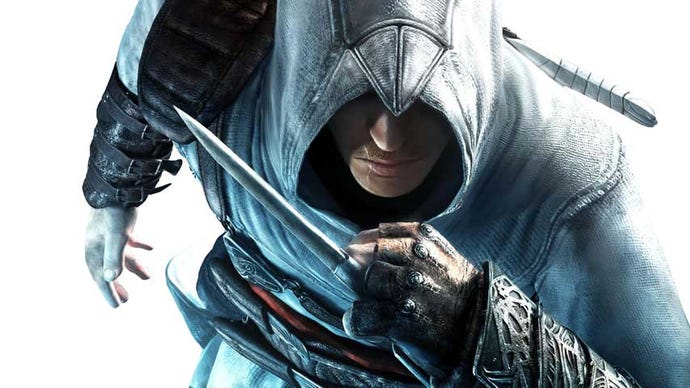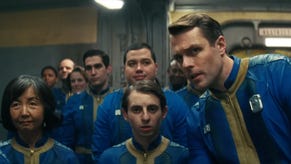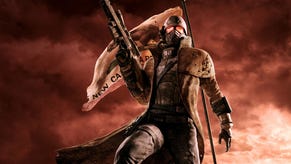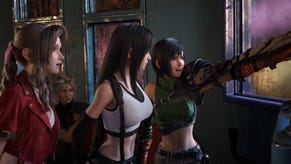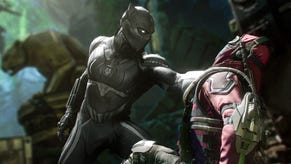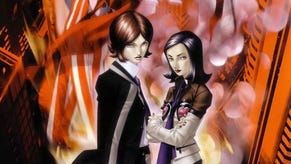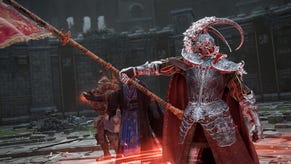Assassin's Creed & Final Fantasy kick off our AAA franchise celebrations
The Big Ones: Assassin's Creed and Final Fantasy are the first two franchises to come under scrutiny in this series on the multi-title properties VG247 has grown to love over the years.
Indie games are great, and we love innovation, but there's something to be said for the big, triple-A franchise thing - and it's usually said in chart-topping sales figures.
We all have a franchise or two that we hold near and dear. Maybe it's just one very special series of games, or maybe like me you have a good half a dozen at least. In this series of features, we're going to count off some of our favourite big names, starting with two that are very close to my own feeble but passionate heart.
Assassin's Creed
Of today's two franchises I'm starting with Assassin's Creed because it comes first alphabetically, if not chronologically. My love for Assassin's Creed is well-documented (I'm on my second Abstergo hoodie; I have an eagle-peak dressing gown; I lost my assassin's symbol tablet gloves and literally cried) but I never actually get tired of talking about Ubisoft's bizarre science-fiction slash historical fiction slash naval battle simulator slash stealth sandbox slash tech demo, so here we go.
"It’s easy to forget how revolutionary Assassin’s Creed was, with its groundbreaking crowd technologies and gloriously free movement."
I'd love to tell you that I bought a first-printing copy of the original Assassin's Creed because I knew, with powerful games journo instincts, that I would love it and it was going to be huge. Actually, I'd been sick in bed for a couple of years, during which time I missed a lot of games, and I decided to pick it up better to prepare for possibly reviewing the sequel now that I was well enough to go back to work. Also, my brother recommended it to me. "It's got a lot of stabbing," he said. He really knows me well.
The first Assassin's Creed is often written off as a tech demo for the rest of the franchise but I love it. It's far more tense than later sequels with its hyper-vigilant guards and limited stealth options. I understand it's not fun for everyone, but I love the challenge of having to be anonymous. I love that you can't just faff about and expect bystanders and guards to ignore you. Later games might have made the guards better and more tenacious hunters, but it also made them far more less likely to notice you in the first place, eventually watering down the already weakened notoriety system to that it may as well not exist at all.
It's easy to forget just how revolutionary Assassin's Creed was, with its groundbreaking crowd technologies and gloriously free movement. I even enjoyed the puppet control system, where each button represented a different part of Altair's body, and actions varied depending on your "profile", which many have described as unnecessarily clunky. The modern-day sections were a revelation to me; I've always been the sort to go off poking into corners when a game tells me to run in a straight line, and to be rewarded for faffing about instead of getting back in the Animus made me feel like the developers and I were playing together, rather than them herding me to their narrative goals.
"Now that Assassin’s Creed has been annualised it’s easy to be cynical about it. But the fact of the matter is Ubisoft keeps trying new things within the series."
Assassin's Creed as a series has had its ups and downs since then, but there have been plenty of ups, and despite my love for the purity of the original I found plenty to love in later games. Assassin's Creed: Brotherhood in particular is a highlight; the unusual approach to multiplayer was a revelation, and the building up of an assassin's guild was extremely satisfying. Assassin's Creed: Revelations started to suffer from a bit of feature glut but provided some much needed extra colour to both Altair and Desmond's stories, as well as letting us blow stuff up with bombs, which I rarely argue with. Assassin's Creed 4: Black Flag took the fun naval section from the much-criticised Assassin's Creed 3 and turned them into a sheer joy and delight to play. And Assassin's Creed 3 - well, uh, you could pat animals, and I really liked that. Moving on.
Now that Assassin's Creed has been annualised it's easy to be cynical about it. But the fact of the matter is Ubisoft keeps trying new things within the series, has been very careful about guarding its canon, and very actively monitors feedback in order to keep improving and refining, with multiple studios given a go at hitting a high note. We're genuinely excited about Assassin's Creed: Unity for a variety of spurious reasons rooted in wild speculation, and Assassin's Creed: Comet, if it is a real thing, is likely to be pretty decent too, because Ubisoft is über-protective of its baby.
Click through to the second page for Final Fantasy.
Final Fantasy
Not everybody enjoys JRPGs and that is totally okay. If you're keen on the freedom offered by games like The Elder Scrolls, or the focus on reactionary tactics of rogue-likes, the idea of being saddled with a cast of largely un-customisable characters and made to follow a linear path likely won't appeal to you. Maybe you hate grinding. Maybe you hate anime aesthetics. Maybe you just can't handle games that require you to select from menus rather than prove your manual dexterity with analog sticks.
"Japan produces a wealth of rich, affective narratives; colourful worlds; and even more colourful characters, often wrapped up in complicated combat systems."
For everyone else, Japan produces a wealth of rich, affective narratives; colourful worlds; and even more colourful characters, often wrapped up in combat systems more complicated than the terrible proliferation of "RPG mechanics" into every genre would have you believe. Several franchises have stood the test of time and held onto players' hearts - Secret of Mana, Dragon Quest and Suikoden, to barely scratch the surface - but Final Fantasy is the titan of the lot, the most recognised and recognisable.
Everybody has their favourite Final Fantasy. Final Fantasy 7 was the one that blew the series into mainstream gaming, with its 3D graphics and non-traditional aesthetic perfectly timed to take advantage of the PSOne generation's desire for non-nerdy, grown-up gaming. You'll still here fans swear black and blue that the messy, rushed plot is a work of genius, and that the death of Aerith (spoilers? Oh my god, go home) was an incredibly moving moment at the heart of the entire game and not something Hironobu Sakaguchi came up with almost at the last minute. I'm teasing you a bit - I love it, and Sephiroth remains one of my favourite villains of all time. The first day I got it, I played for so long that when I finally went to bed the blue menu screen popped up behind my eyelids when I closed them, and my entire party had 255 in every stat thanks to hundreds of hours of morphing in the sunken submarine.
For those who disdain Final Fantasy 7, Final Fantasy 6 remains the last "true" Final Fantasy. Strong female leads, an opera scene as beautiful as the limitations of 16-bit consoles allowed, a cast of diverse, troubled characters, and a story in which the world actually suffered apocalypse - now that's a game, you have to admit.
My heart belongs to Final Fantasy 8, a much sleeker effort than Final Fantasy 7 which lost some series fans with its broken magic system and confused themes, set in a bizarre universe where school children fight wars, monsters bleed from the moon and buildings float about. I have more than a little fondness for Final Fantasy 9, Sakaguchi's last personally-led project, with its deliberately traditional stylings and beautifully memorable touches - Dagger's emotional crisis is a real highlight.
"The franchise’s greatest strength is its insistence on constant evolution and re-evaluation, as Square Enix explores the far-reaches of the RPG space."
Final Fantasy 10 we've discussed in detail recently, so I won't repeat myself, but Final Fantasy 12 needs a champion. Its troubled development is well-documented, with major personnel changes and last minute decisions resulting in a product arguably less strong than previous entries. The gambit system is particularly interesting, though, and much more flexible and satisfying than the paradigms that followed in Final Fantasy 13 - itself an interesting and much-maligned game, although its sequels can p**s right off.
That's not even touching on the five early games, the MMOs or the plethora of spin-offs that have turned up, especially in recent years. Final Fantasy fans sometimes complain that Square Enix has lost sight of what made the franchise great, and is flailing around attaching the name to anything it can find, whether it deserves it or not - but that fails to account for the franchise's greatest strength, which is its insistence on constant evolution and re-evaluation, as Square Enix explores the far-reaches of the RPG space.
You can love things and still have criticisms for them, and the perhaps thousands of hours I've invested in Final Fantasy games over the years don't prevent me from finding faults with the franchise. But there's simply no denying its place in the canon of the industry's greatest properties. The upcoming Final Fantasy 15 has made the jump to next-gen, and we can't wait to see what Square Enix does with the power at its disposal.
Share your memories of Assassin's Creed and Final Fantasy below. We'd also love to hear which franchises have meant the most to you over the years.
